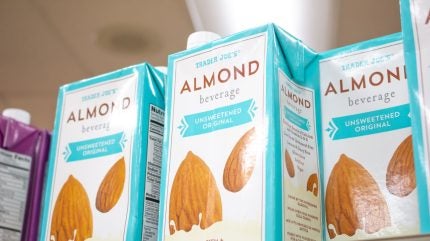
US private label’s market share could be hit 30% by 2033, according to a new report from Rabobank.
Private label made up 19% of grocery sales in the country in 2023, growing just two percentage points since 2014 but a number of factors could open the door to growth, the Netherlands-based financial-services group suggested.
One is the trading down by the consumer in grocery, Rabobank said. Financial challenges and weak consumer confidence are affecting spending, it suggested, with wage growth sitting at 1% in 2024 and credit-card debt sitting at “an all-time high” in the second quarter of the year.
Private-label products are typically 25% to 65% cheaper than branded products in the US. For example, branded coffee products are priced at an average of around $9 per unit, while private-label brands come out at circa $7 per unit.
The consolidation of the retail market is also expected to bring more private-label products to the US market. Kroger’s merger with Albertsons, for instance, if approved, would increase retailer concentration from 4% to 5%, Rabobank said.
While the market is also seeing “A-brand consolidation”, such as Mars’ proposed acquisition of Kellanova, retailer combinations could “likely lead to more push back against A-brands and ultimately more quality PL offerings”, it added.
The rising number of “hard discounters” in the US is also projected to boost the market share of private labels, with majority own-label retailer Aldi expected to operate around 2,500 locations in the US by 2028, while Lidl and Trader Joe’s are also undergoing “plans for additional development”, the report stated.
Improving the quality of private label is likely “the most essential element to put the wind back in PL’s sails” in the US, Rabobank said.
Retailers need to invest more in their own-label brands and “vertical integration” to combat the increasing competition in the market from larger national brands, it suggested.
Rabobank expects the US to see growing numbers of domestic private-label suppliers in the country, which would play out through increased investment in new manufacturing sites and “consolidation of some assets”.
Ongoing cost pressures, it added, could also influence some smaller brands to turn to private-label contract manufacturing, in turn boosting the number of specialist suppliers in the country.
While the US has already seen growing numbers of international specialist private-label suppliers enter the market, Rabobank expects this number to grow through investment in the form of “acquisitions, partnerships and greenfield”.
However, the consultants stressed that if specific “variables”, such as retailer consolidation or increased domestic private label supply fail to come to fruition, the US could see a deceleration in growth.
Meanwhile, the national distribution of private label in the US, which has previously been an obstacle for the sector, “could remain that way going forward”, Rabobank added. If that becomes the case, private label could still grow but in more specific areas of the US such as the Midwest, West Coast and East Coast, it added.
The performance of private label in the US could also depend on the market in Europe, Rabobank said. It suggested there is “a slight chance” the recent disposal of assets by private-label manufacturers such as Aryzta and Richelieu Foods could “foreshadow” more divestments by European suppliers across the Atlantic “due to challenges navigating the US market”.



